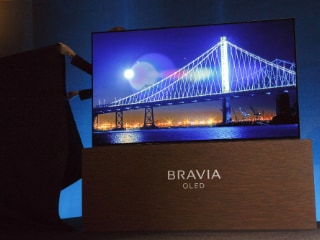- Home
- Others
- Others Features
- US Tech Firms Debate How Strongly to Protest Trump's Immigration Order
US Tech Firms Debate How Strongly to Protest Trump's Immigration Order

As news about President Donald Trump's temporary ban on immigrants and visitors from seven Muslim-majority countries filtered through Silicon Valley on Saturday, tech leaders from Apple to Tesla began condemning the move.
But in anguished phone calls, late-night text messages and e-mails over the weekend, Silicon Valley executives were struggling to figure out whether they would - or should - take bigger and more coordinated actions to condemn the executive order, which also suspended the nation's refugee program, according to people who spoke on the condition of anonymity because the conversations were private.
Apple, Google, Other Tech Firms Protest US President Donald Trump's Immigration Order
There was even discussion in some circles of finding ways to pressure Peter Thiel, a billionaire venture capitalist who was Trump's highest-profile supporter in Silicon Valley and was mocked by critics over the weekend for predicting that Trump wouldn't follow through on his campaign proposal to ban Muslims. (Thiel said this weekend that the executive order falls short of a Muslim ban.)
But by Sunday evening, it wasn't clear whether Silicon Valley planned to go beyond statements and a few other isolated actions to counter Trump's move to restrict immigration.
"Right now, everyone is facing different levels of conflict between what they know would be right, to stand up for American values, versus what they might have to lose," Ali Partovi, an entrepreneur and early investor in Airbnb, Uber, Dropbox and Facebook, said in an interview. "Leaders of tech companies have been talking for a year about when to take a stand or draw the line, and I think last week was sort of an awakening that the time is now."
Technology leaders have previously pinballed as they weighed the benefits of a Trump relationship against the potential costs to the bottom line. For Silicon Valley, the weekend represented a watershed moment in those deliberations, said Sam Altman, president of the Silicon Valley startup incubator Y Combinator.
During the presidential campaign, tech executives were sharply critical of Trump. But after he was elected, industry leaders, including Apple chief executive Tim Cook, Microsoft chief executive Satya Nadella and Tesla Motors chief executive Elon Musk met with him in an attempt to gain the good graces of the administration. During the meeting, the executives raised many issues where the government could help their businesses, including cutting the corporate tax rate, navigating the Chinese market, improving the contracting and bidding process for start-ups, and supporting development of cloud computing.
Then over the weekend, dozens of technology leaders, including those who attended the Trump Tower meeting, denounced the immigration ban. In strongly worded, companywide emails, open letters, and on Twitter, Apple chief executive Tim Cook quoted Martin Luther King Jr., while Google chief executive Sundar Pichai wrote that it was "painful to see the personal cost of this executive order on our colleagues."
"Any fairly elected president deserves an open-mind," Altman said of the initial meetings. "But clearly something has happened here that people feel is important and that it is time to stand up and object."
Altman was among the thousands who gathered at San Francisco International Airport this weekend to protest, as was Sergey Brin, co-founder of Google (Brin, a refugee, was careful to say he was not attending as a Google official).
Not all technology leaders were vocal about the new immigration policies. Oracle Corp., whose chief executive, Safra Catz, was a Trump ally and attended the tech summit at Trump Tower, didn't make a statement. Intel did not make one. Amazon.com sent a companywide email advising employees who were from the seven banned countries to avoid traveling outside the United States, but chief executive Jeff Bezos did not personally speak out against the policy. (Bezos owns The Washington Post.)
It's not clear if tech companies' concerns will make a difference with Trump and his advisers.
During the campaign, Trump defended in a radio interview with then-Breitbart chief executive Stephen K. Bannon the importance of high-skill immigration. "We have to keep our talented people in this country," the candidate said.
Bannon, now Trump's chief strategist, seemed to take issue with that perspective.
"When two-thirds or three-quarters of the CEOs in Silicon Valley are from South Asia or from Asia, I think . . . " Bannon said, without completing the thought. "A country is more than an economy. We're a civic society."
Few industries benefit from immigration as much as Silicon Valley. The tech industry is the biggest user of high-skilled visas for engineers. Apple founder Steve Jobs was the son of a Syrian immigrant; Syria is one of the countries included in the ban. Just over half of all start-ups valued more than a billion dollars by private investors were founded by immigrants, according to the think tank National Foundation for American Policy.
Over the weekend, in response to the executive order, several companies took actions beyond public statements. Airbnb promised to host families stuck overseas, and ride-sharing company Lyft announced a $1 million donation to the American Civil Liberties Union. (Several companies, including Google and Salesforce, recalled overseas staff members and helped employees sort visa issues.)
Partovi, who was among the organizers of an open letter last year from dozens of chief executives protesting discriminatory travel restrictions in an act signed by President Obama, said that travel restrictions were just bad for business and that the concerns were not partisan.
"Discrimination is un-American whether it's done by a Democrat or a Republican. Every smart businessman knows that draconian travel restrictions are bad for business," he said.
The sharpened political division that followed Trump into office has greeted tech leaders, as well, with critics saying the tech industry could do much more.
When Jack Dorsey, chief executive of Twitter and Square, said this weekend that the refugee ban "goes against our principles," many people responded with pleas to ban Trump from Twitter - depriving the president of what seems like his favorite way to level criticisms far and wide. Dorsey so far has resisted doing so.
Worries that Trump plans to build a computerized Muslim registry led to a review of which tech firms would be willing to help assemble such a database. Some, such as Microsoft, IBM and Facebook, have announced they would not help with such an effort. Separately, hundreds of tech workers have signed a pledge to not help with a registry.
The ride-sharing juggernaut Uber - a Silicon Valley darling valued at more than $60 billion - was pulled into the weekend's protests at airports when it announced it was not increasing fares at John F. Kennedy International Airport, despite heightened demand from people flocking to the terminal to protest. The ride-hailing company thought it was doing the right thing. But its message came on the heels of a call by the New York Taxi Workers Alliance to stop picking up customers at Kennedy from 6 to 7pm Saturday to protest Trump's refugee ban. To some, it sounded like Uber was attempting to undercut the taxi strike.
That fed an online campaign to "Delete Uber." And it took off.
Author Ayelet Waldman said she was done with the service.
Facebook co-founder Chris Hughes accused Uber of collaborating with "Trump's anti-immigrant actions."
Sanho Tree, a fellow at the progressive think tank Institute for Policy Studies, said he chose to boycott Uber because this was just the latest in a series of questionable tactics by the company.
"They keep punching themselves in the face," Tree said.
Uber tried to clarify its position, explaining in social media posts and to reporters that it intended to lower fares for protesters, not undercut the taxi stoppage. It also promised to compensate drivers stuck abroad.
"We're sorry for any confusion about our earlier tweet - it was not meant to break up any strike," an Uber spokesman told The Washington Post.
Uber previously had been criticized for comments by its chief executive Travis Kalanick that the company would "partner with anyone in the world" if they agree with Uber's views on transportation.
Kalanick is also one of several corporate leaders serving on Trump's economic advisory team - the only other person from the technology sector is Musk - which is scheduled to meet for the first time this Friday. Kalanick said in a Facebook post that he planned to bring up the refugee ban at that meeting. Musk did not respond to requests for comment.
"I'll leave it to each individual to decide the relationship they want to have with the administration," investor Hunter Walk said. "But I'm seeing a norm move towards ensuring we preserve human rights ahead of short-term business decisions."
© 2017 The Washington Post
Catch the latest from the Consumer Electronics Show on Gadgets 360, at our CES 2026 hub.
Related Stories
- Samsung Galaxy Unpacked 2025
- ChatGPT
- Redmi Note 14 Pro+
- iPhone 16
- Apple Vision Pro
- Oneplus 12
- OnePlus Nord CE 3 Lite 5G
- iPhone 13
- Xiaomi 14 Pro
- Oppo Find N3
- Tecno Spark Go (2023)
- Realme V30
- Best Phones Under 25000
- Samsung Galaxy S24 Series
- Cryptocurrency
- iQoo 12
- Samsung Galaxy S24 Ultra
- Giottus
- Samsung Galaxy Z Flip 5
- Apple 'Scary Fast'
- Housefull 5
- GoPro Hero 12 Black Review
- Invincible Season 2
- JioGlass
- HD Ready TV
- Laptop Under 50000
- Smartwatch Under 10000
- Latest Mobile Phones
- Compare Phones
- Red Magic 11 Air
- Honor Magic 8 RSR Porsche Design
- Honor Magic 8 Pro Air
- Infinix Note Edge
- Lava Blaze Duo 3
- Tecno Spark Go 3
- iQOO Z11 Turbo
- OPPO A6c
- Lenovo Yoga Slim 7x (2025)
- Lenovo Yoga Slim 7a
- Lenovo Idea Tab Plus
- Realme Pad 3
- Moto Watch
- Garmin Quatix 8 Pro
- Haier H5E Series
- Acerpure Nitro Z Series 100-inch QLED TV
- Asus ROG Ally
- Nintendo Switch Lite
- Haier 1.6 Ton 5 Star Inverter Split AC (HSU19G-MZAID5BN-INV)
- Haier 1.6 Ton 5 Star Inverter Split AC (HSU19G-MZAIM5BN-INV)







![[Sponsored] Haier C90 OLED TV | Dolby Vision IQ, 144Hz OLED and Google TV in Action](https://www.gadgets360.com/static/mobile/images/spacer.png)









